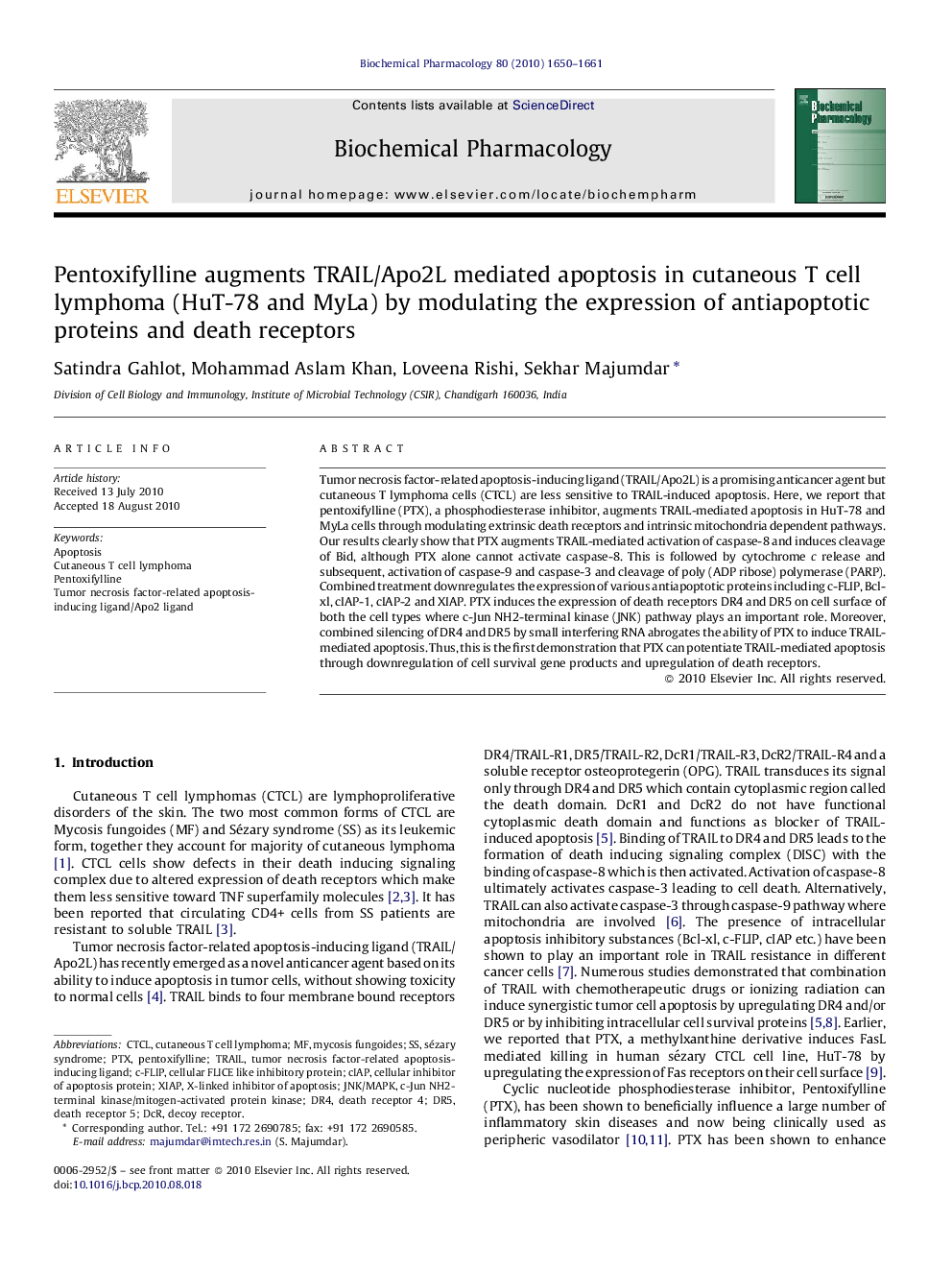| Article ID | Journal | Published Year | Pages | File Type |
|---|---|---|---|---|
| 2513216 | Biochemical Pharmacology | 2010 | 12 Pages |
Tumor necrosis factor-related apoptosis-inducing ligand (TRAIL/Apo2L) is a promising anticancer agent but cutaneous T lymphoma cells (CTCL) are less sensitive to TRAIL-induced apoptosis. Here, we report that pentoxifylline (PTX), a phosphodiesterase inhibitor, augments TRAIL-mediated apoptosis in HuT-78 and MyLa cells through modulating extrinsic death receptors and intrinsic mitochondria dependent pathways. Our results clearly show that PTX augments TRAIL-mediated activation of caspase-8 and induces cleavage of Bid, although PTX alone cannot activate caspase-8. This is followed by cytochrome c release and subsequent, activation of caspase-9 and caspase-3 and cleavage of poly (ADP ribose) polymerase (PARP). Combined treatment downregulates the expression of various antiapoptotic proteins including c-FLIP, Bcl-xl, cIAP-1, cIAP-2 and XIAP. PTX induces the expression of death receptors DR4 and DR5 on cell surface of both the cell types where c-Jun NH2-terminal kinase (JNK) pathway plays an important role. Moreover, combined silencing of DR4 and DR5 by small interfering RNA abrogates the ability of PTX to induce TRAIL-mediated apoptosis. Thus, this is the first demonstration that PTX can potentiate TRAIL-mediated apoptosis through downregulation of cell survival gene products and upregulation of death receptors.
Graphical abstractSchematic diagram of the apoptotic pathway induced by the combined treatment with PTX and TRAIL.Figure optionsDownload full-size imageDownload as PowerPoint slide
